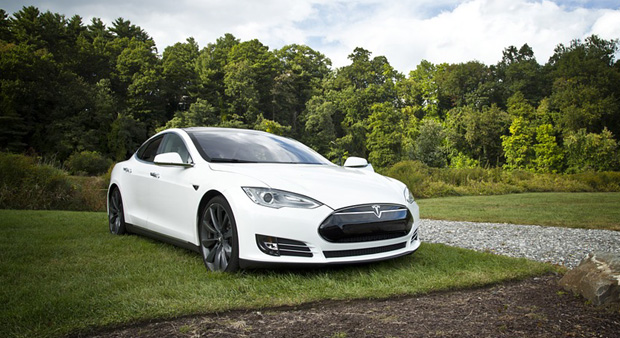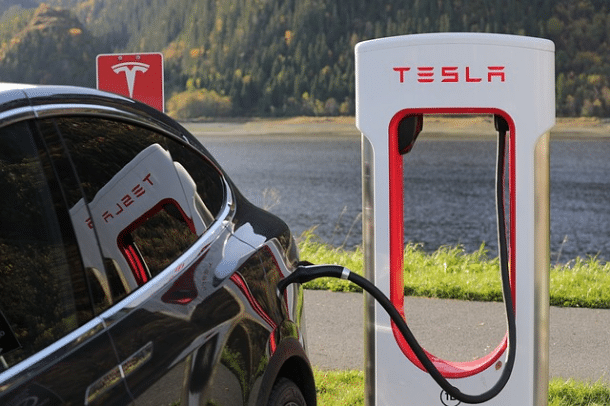Clean Technica (CT) has created an information page to fight the myths circulating about Tesla electric cars.
The news and analysis website devoted to clean technology consulted the Tesla community to draw up its list of common misconceptions about Tesla electric vehicles (EVs).
Each myth is debunked using up-to-date information compiled with the help of Tesla owners and users. We examine a couple here, followed by a myth about Tesla CEO Elon Musk’s ‘big battery’ in South Australia.

Myth 1: Tesla electric cars are more expensive than fossil-fueled cars
It’s true that Teslas are still relatively expensive in Australia, where we lag behind in EV uptake compared with the rest of the world.
Even the lowest-cost Model S ‘Standard Range’ Tesla starts at around $115,000 on the Australian market.
However, CT’s Tesla Myth page points out that Tesla electric cars cost less than fossil fuel cars over their lifetime due to cheaper fuel (electricity versus petrol) and maintenance (electric cars have far fewer moving parts). They also have a higher resale value.
Australia’s Electric Vehicle Council says EVs are four times cheaper to run than traditional fuel-powered vehicles. EV battery costs have also fallen 75 per cent in nine years.
Meanwhile, EVs can be charged at home using rooftop solar panels and a domestic battery to save more money on charging.
Myth 2: Tesla EVs have more lifetime carbon emissions than fossil fuel cars
Yes, Tesla EVs do have a higher carbon footprint during production because of their battery component.
However, this is easily outweighed by the fact that the Tesla electric car – like any fully electric vehicle – has zero exhaust emissions once it hits the road.
Tesla electric cars last far longer on the road than gas-powered vehicles because of their simple mechanics, CT says. In fact, each EV on the road will therefore replace multiple gas-fired cars.
As a result Tesla is aiming to create vehicles and batteries which last a million miles.
Meanwhile, Tesla has begun battery recycling. The company wants to reach 100 per cent battery recycling as soon as it can.

Myth 3: Tesla didn’t make money on the South Australia ‘big battery’
It’s a fact that Tesla billionaire Elon Musk didn’t make a profit when he installed the world’s largest lithium-ion battery at SA’s Hornsdale Energy Reserve.
But he was never aiming to. He responded to a dare tweeted by Australian software entrepreneur Mike Cannon-Brookes. Musk wanted to prove that countries can meet their electricity needs using clean wind and solar power stored in giant grid backup batteries.
The Australian Energy Market Operator gave the Tesla Powerpack-based big battery a big tick last year. As reported by Business Insider Australia, the battery:
- Made $13 million revenue in the first six months of operation.
- Saved the SA Government $33 million by stabilising the grid in super-fast time.
- Helped prevent further blackouts in SA.
- Contributed to a 57 per cent drop in the cost of Frequency Control Ancillary Services used to top up the power grid.
Tesla myths dispelled
So, there are some of the major myths dispelled, two about Tesla electric cars and one about Tesla batteries.












































